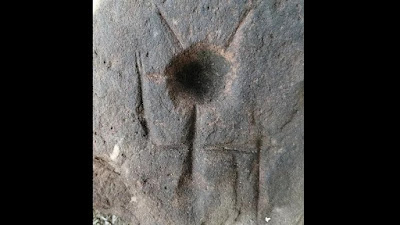Humans are boundlessly curious, and that's a good thing. Our drive to understand, to cure our ignorance about the world around us, is the engine that powers science. In my 32-year career as a science teacher, one of the things I strove the hardest to accomplish was to urge my students never to be content to shrug their shoulders and stop trying to understand.
Like most things, though, this curiosity has a downside, and that is when it turns into a desperation to have an answer, any answer, whether it's supported by the evidence or not. Saying "I don't know, and may never know" is sometimes so profoundly uncomfortable that we settle into whatever explanation sounds superficially appealing -- and forthwith stop thinking about it.
Taking a scientific, skeptical view of things requires not only that you have the drive to understand, but that you can tolerate -- and know the scope of -- the limits of your own knowledge. As theoretical physicist John Archibald Wheeler put it, "We live on an island surrounded by a sea of ignorance. As the island of our knowledge grows, so does the shore of our ignorance."
What got me thinking about this is a story I ran into on the site Coast to Coast, which specializes in oddball speculation about unexplained phenomena. The headline was "Mysterious Stone Carving Stumps Archaeologists in England," just the latest in umpteen popular media stories about some new discovery that "has scientists baffled."
To read this stuff, you come away with the impression that scientists do nothing all day but sit around scratching their heads in puzzlement.
In any case, the contents of the story are interesting enough. A curious stone carving was discovered by some archaeologists investigating a Late Bronze Age site on Nesscliffe Hill, near Shrewsbury. Without further ado, here's the carving:
Note how many times Reilly uses words like "appears" and "could be" and "possible" and "suggested." The fact is -- as he admits up front -- he doesn't know who carved the figure and why. Dating such finds is a challenge at best, and this one is especially problematic; it was found in loose soil that had been used to backfill a trench from an earlier dig, so it was not in what archaeologists call "a secure context" (i.e., pretty much where it had been placed when its maker set it down millennia ago).
None of this is all that unusual; this kind of thing happens all the time in archaeology, and is in fact way more common than finding an artifact and being able to ascertain exactly when it had been created, by whom, and why. But what got me thinking about our need to find an answer, any answer, was how Tim Binnall -- who wrote the article about the discovery -- wound up his piece by asking if any of his readers could "solve the mystery of the stone carving," and asked them to submit their answers to him at Coast to Coast.


No comments:
Post a Comment